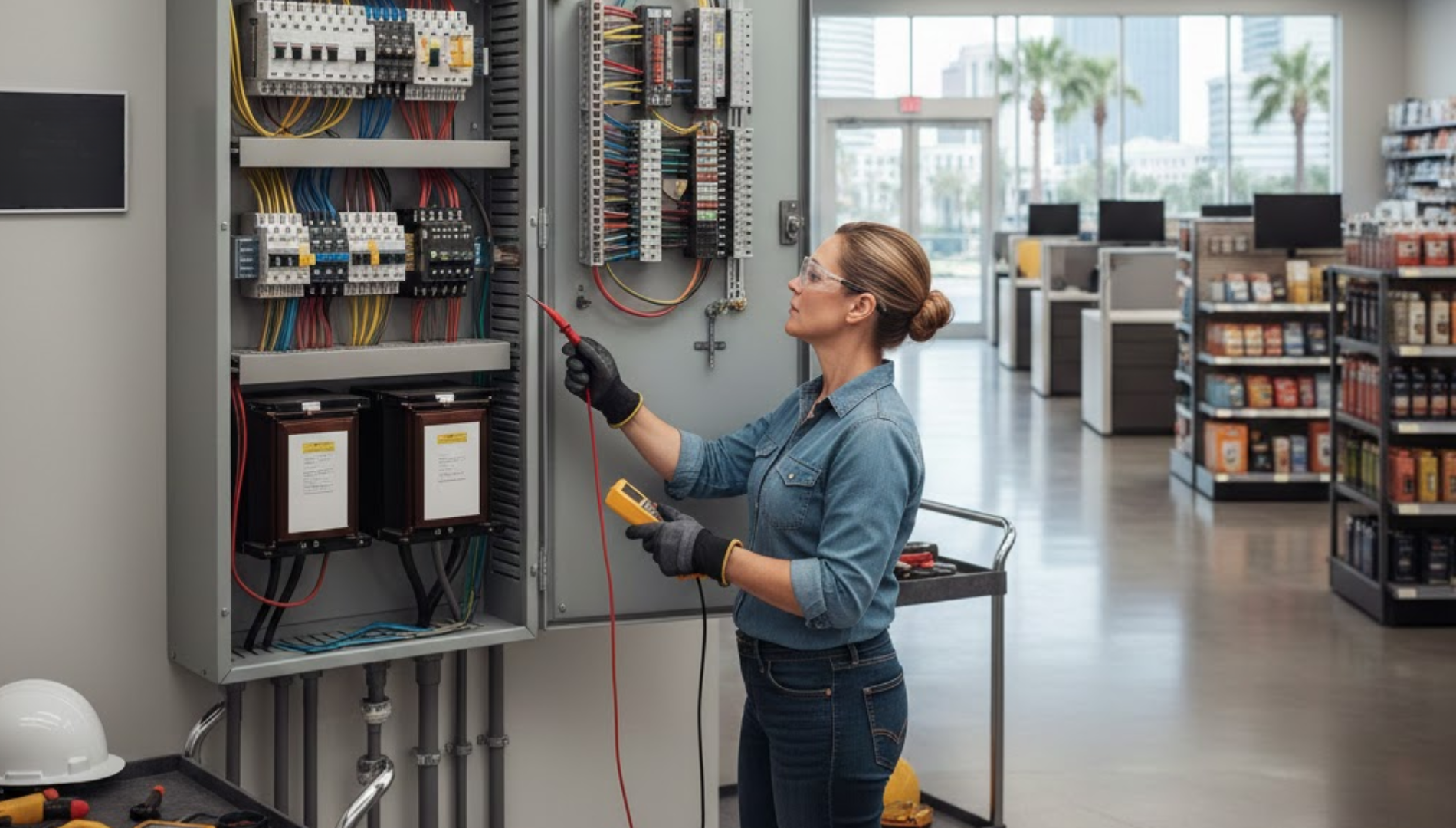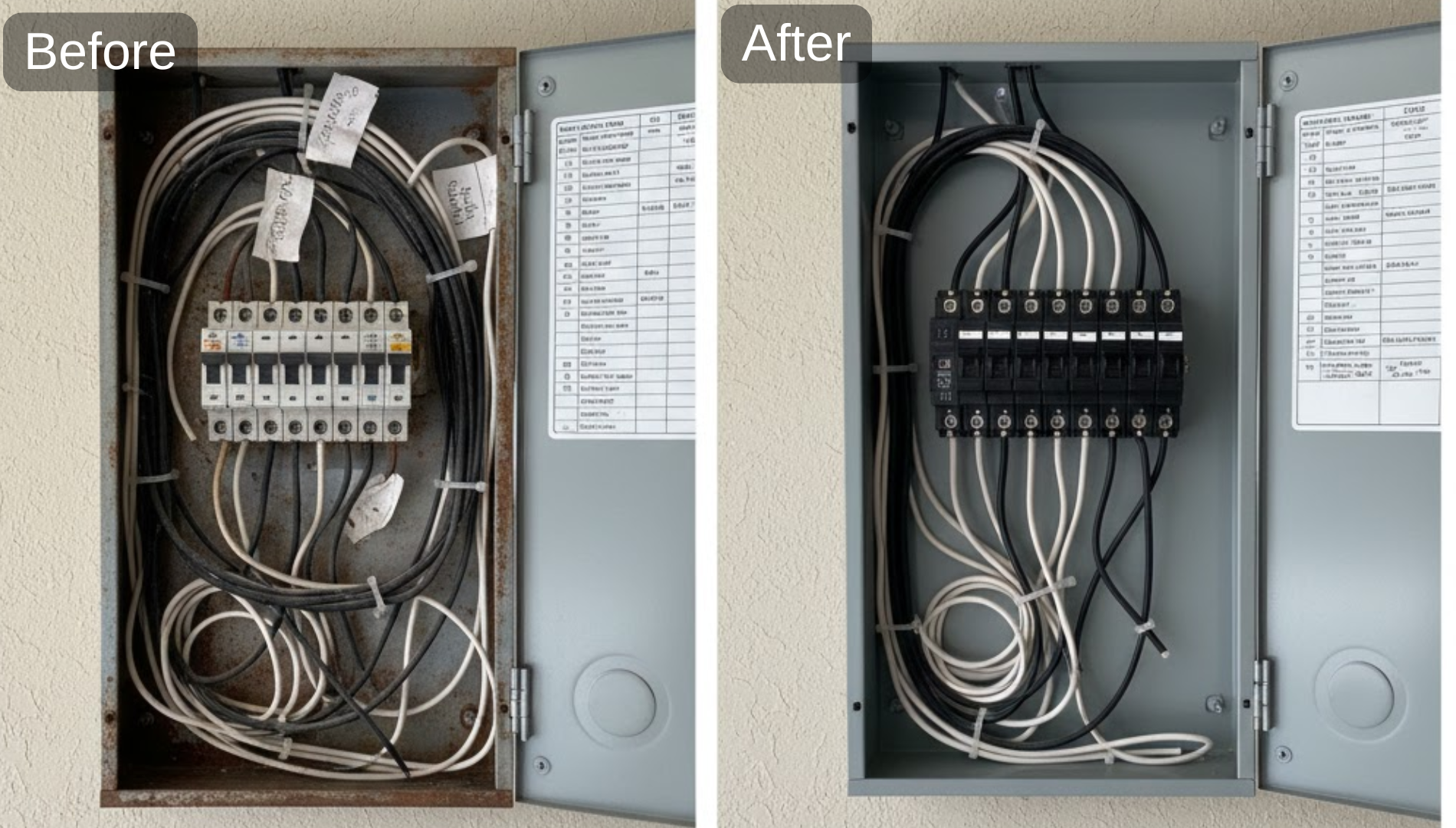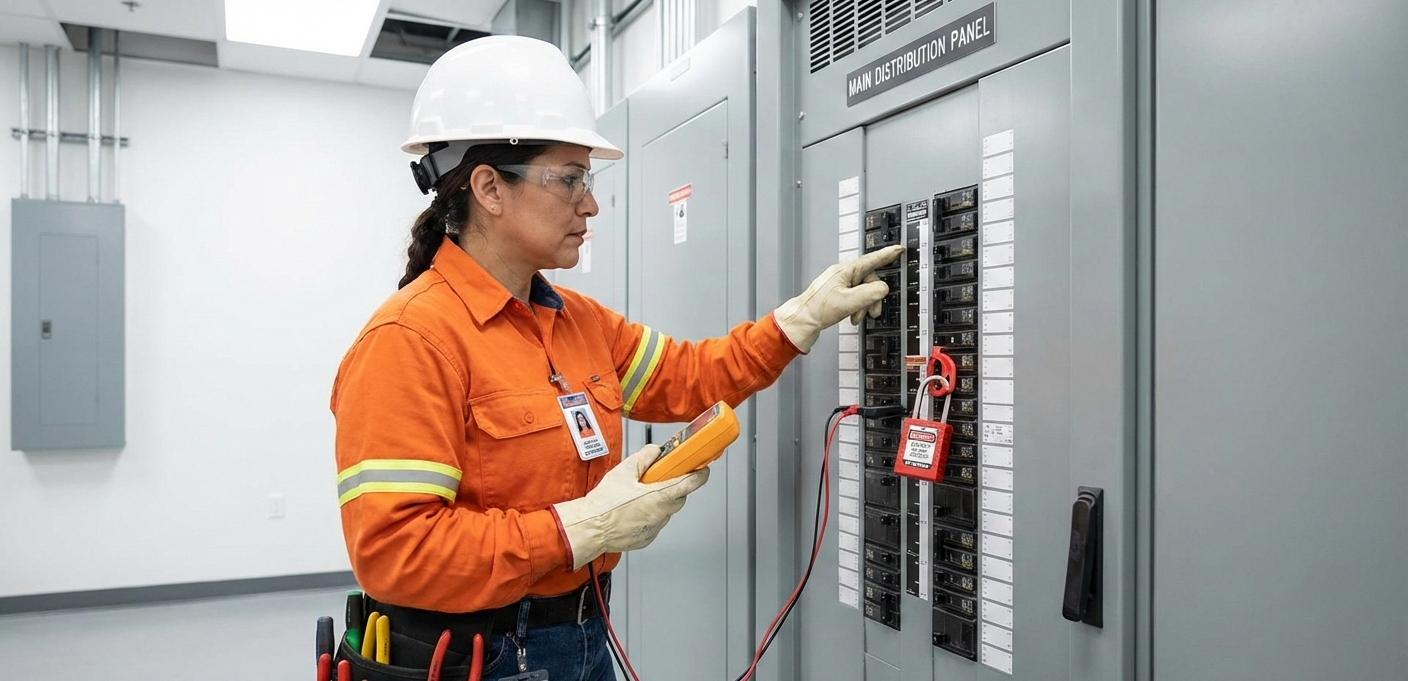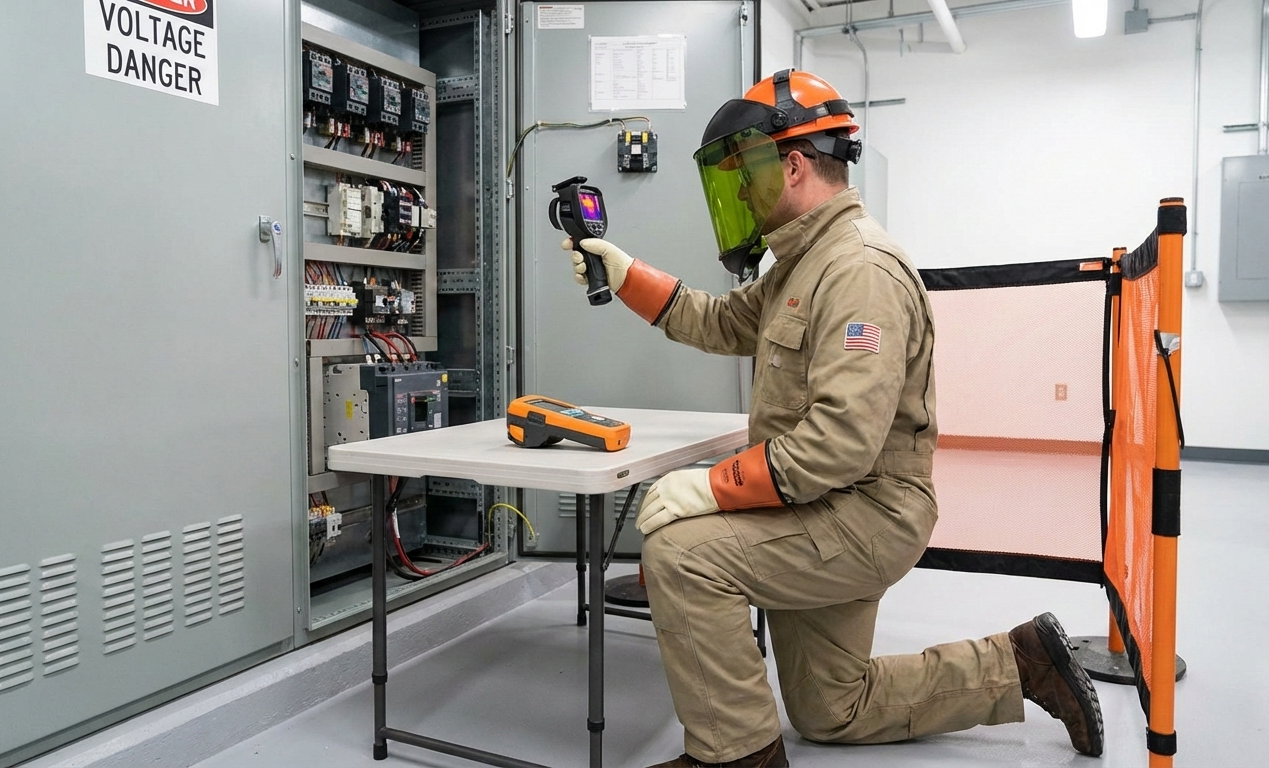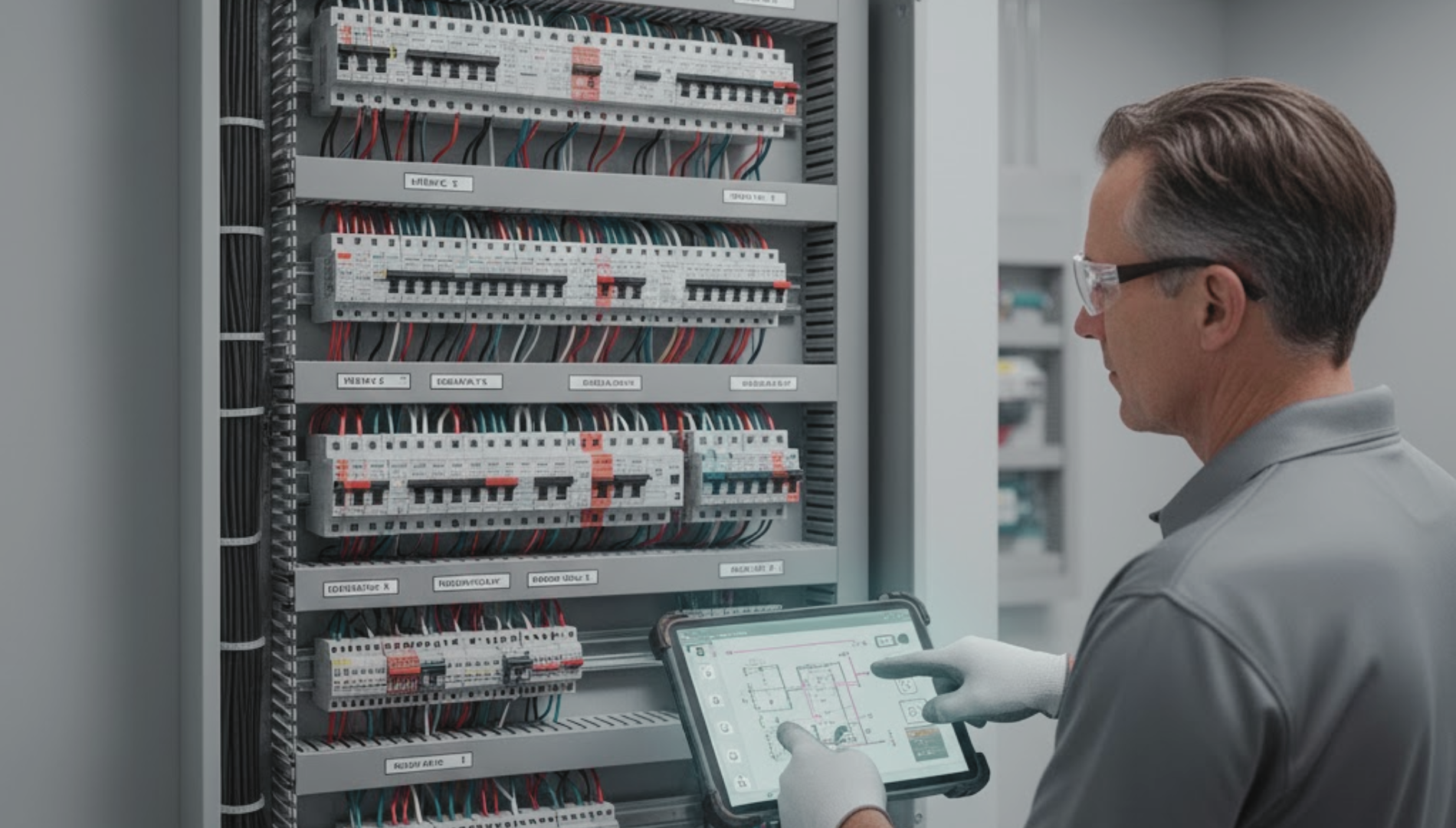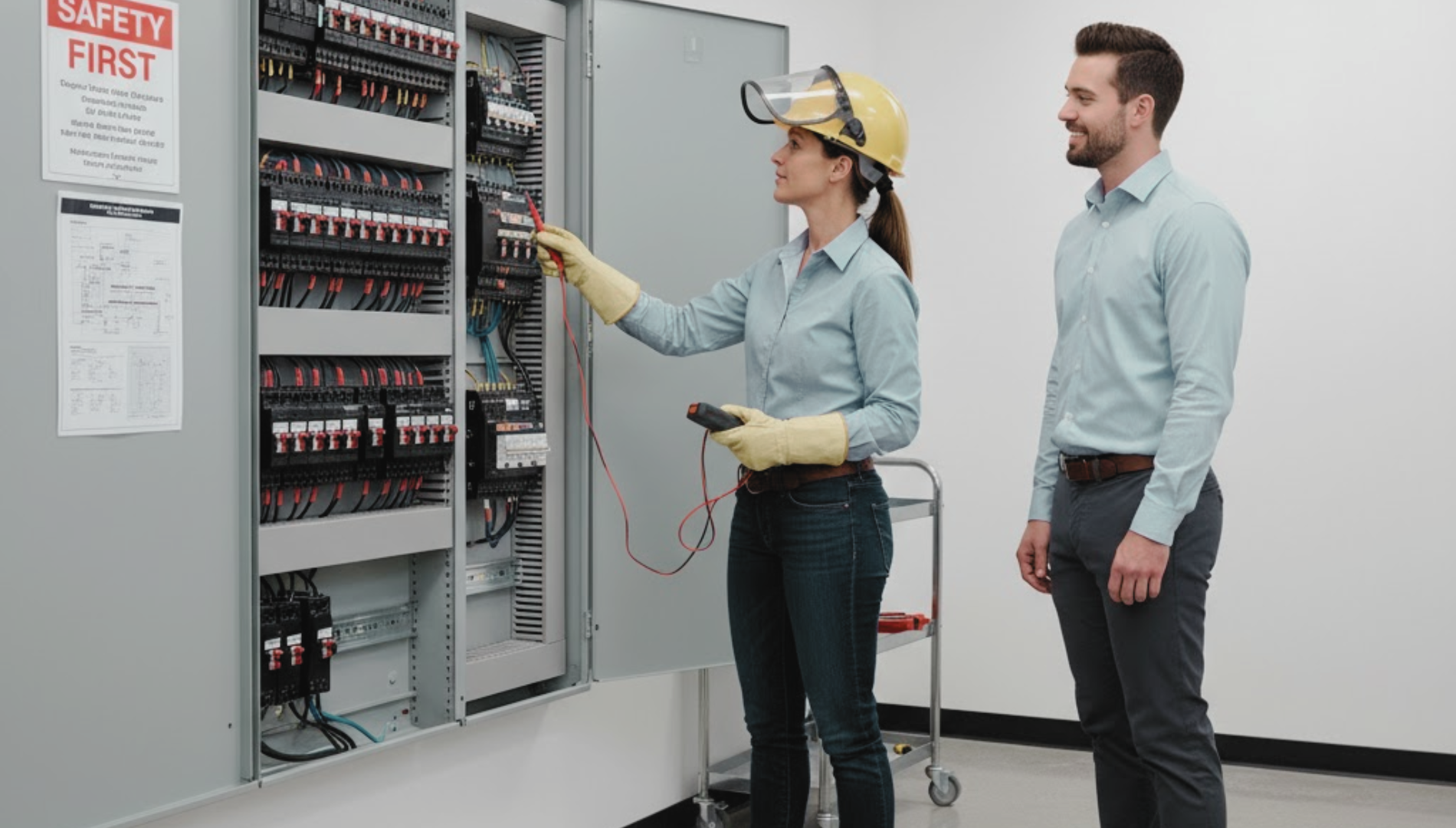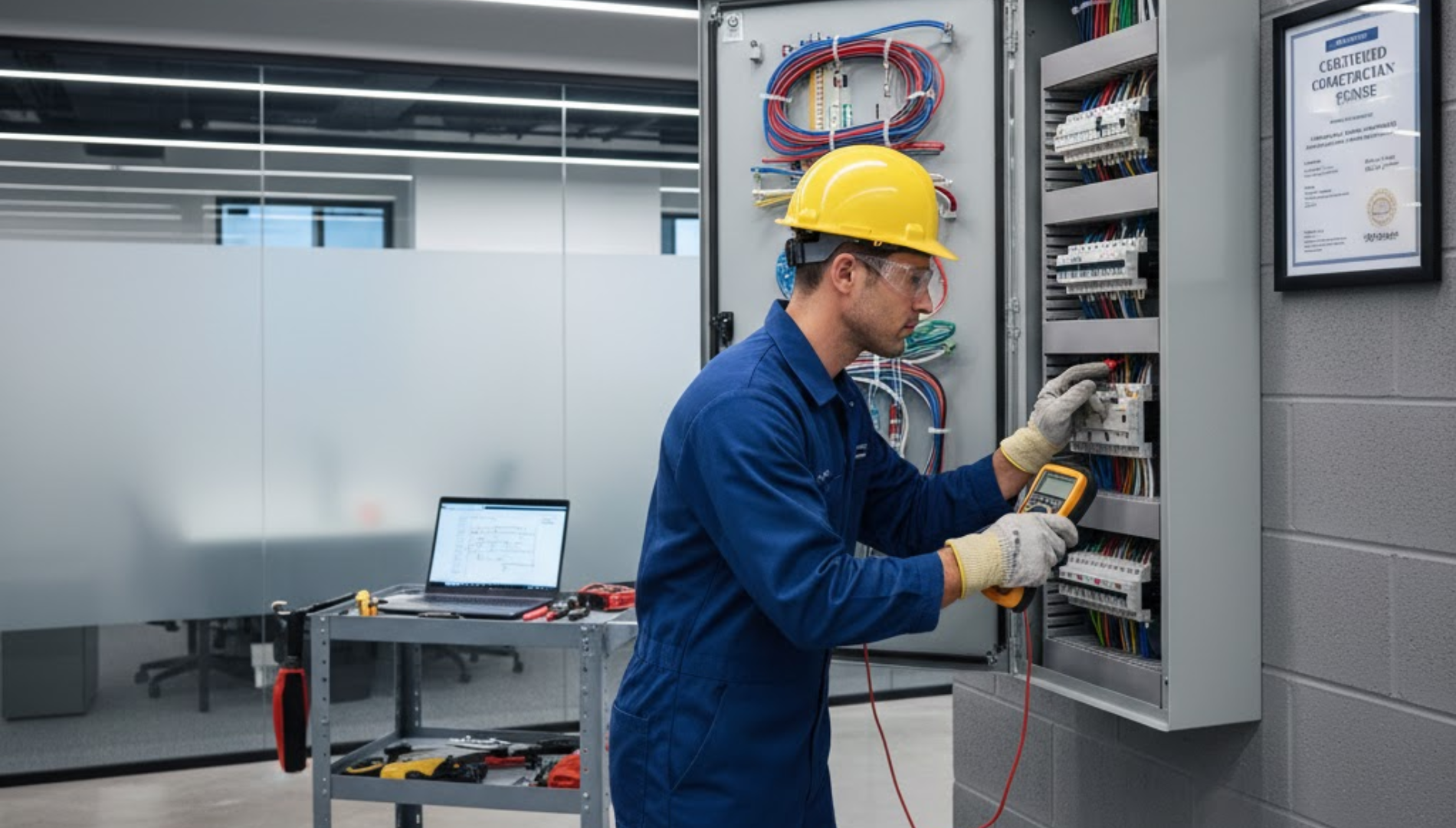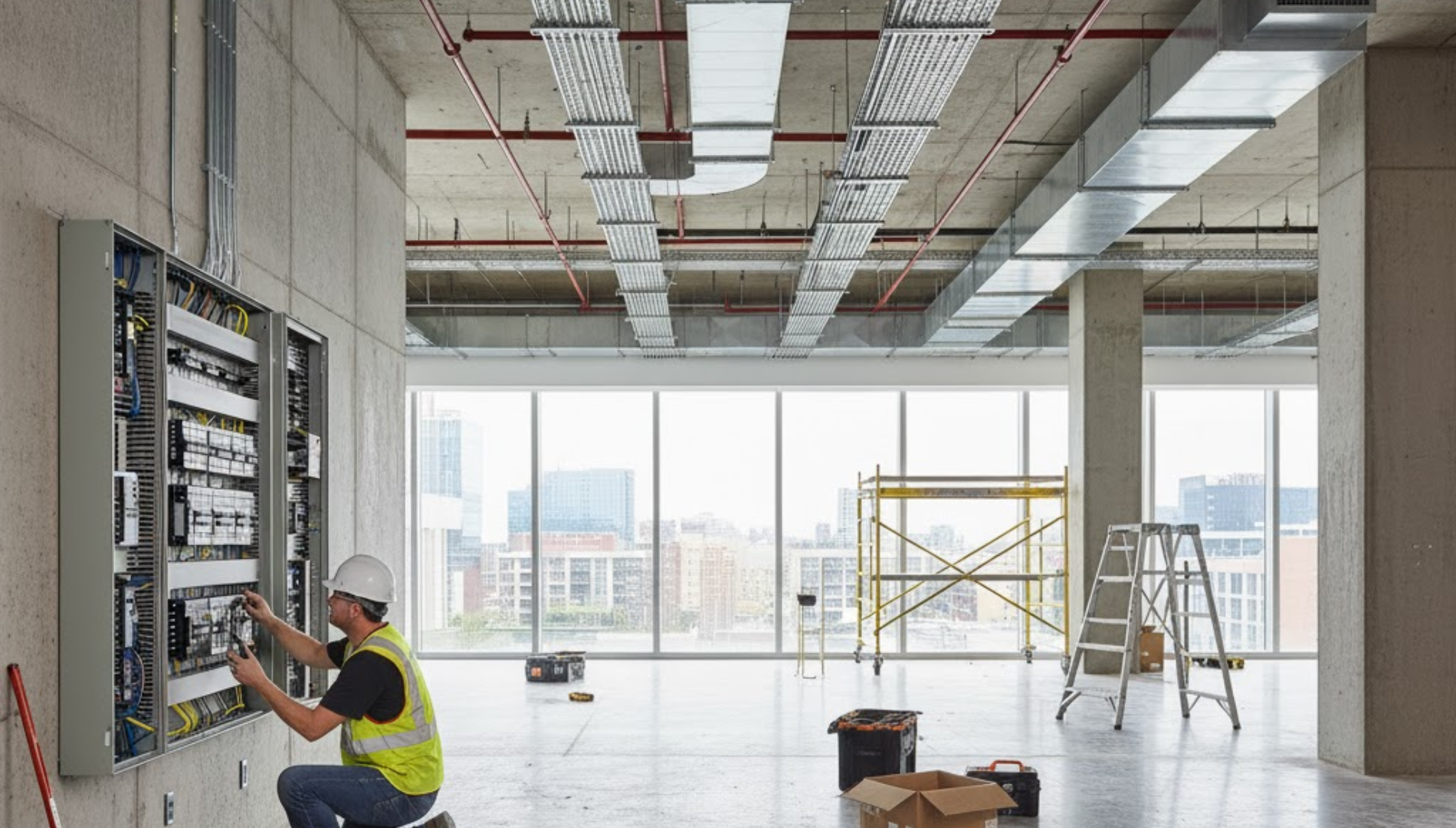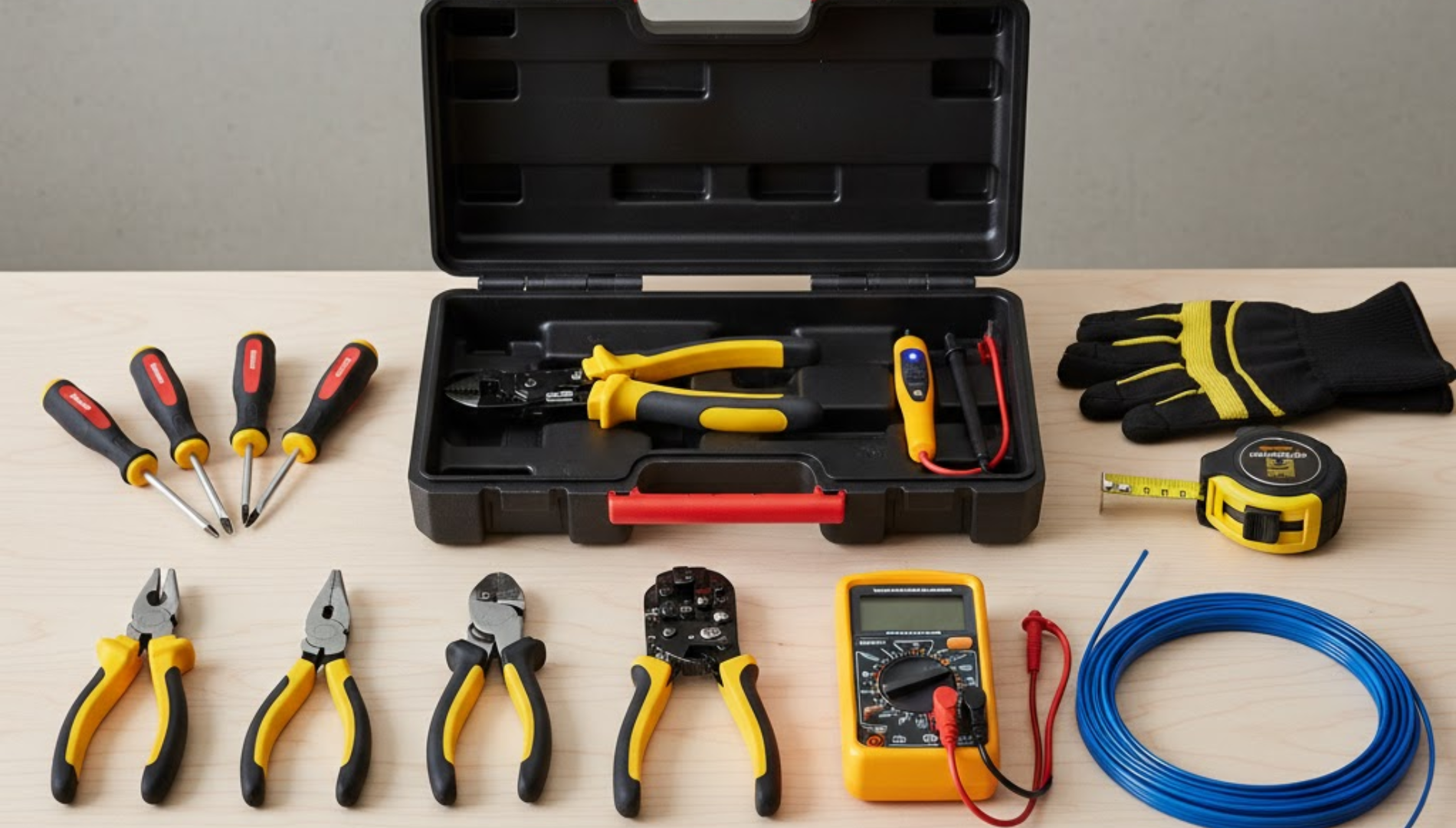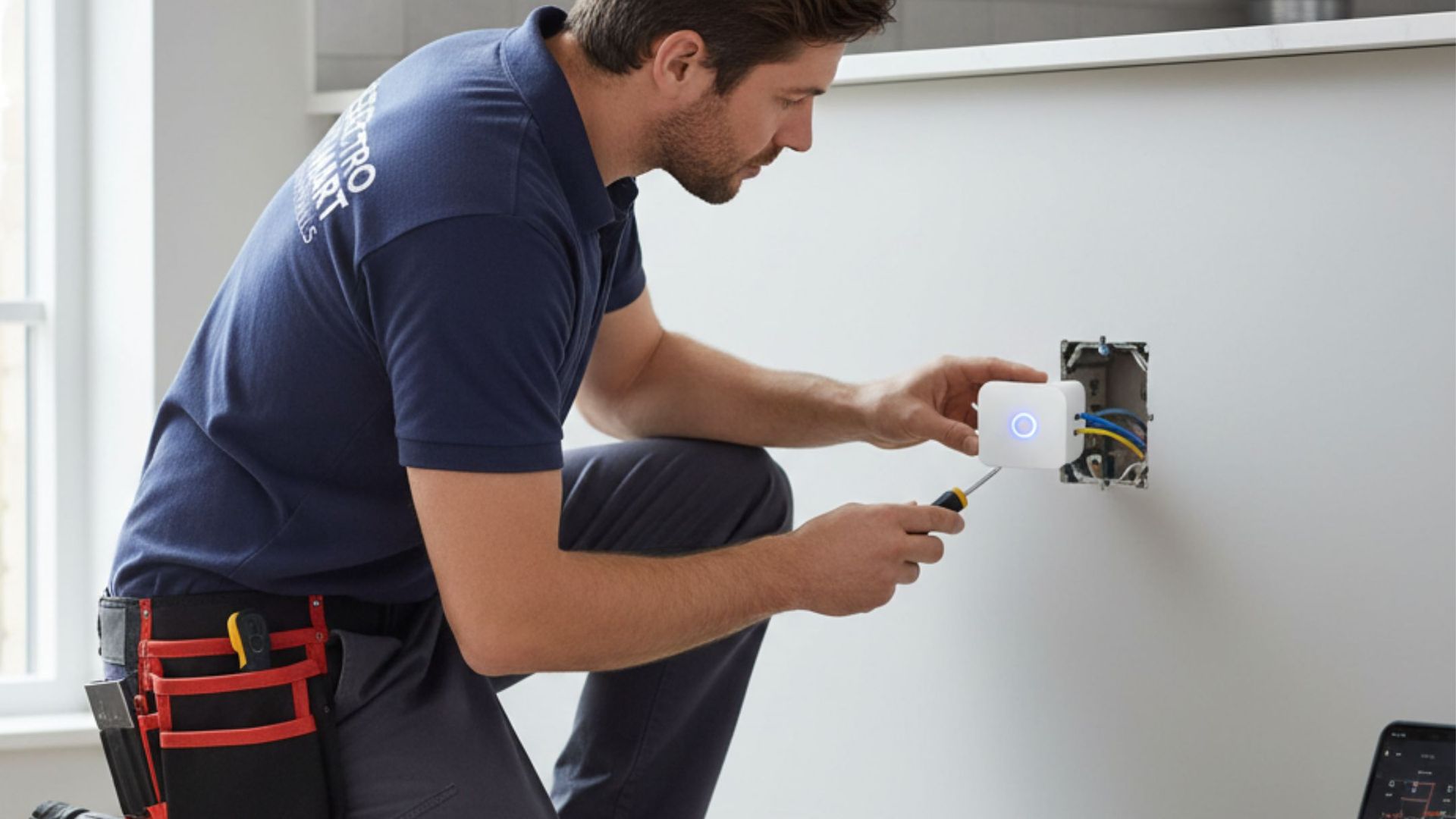Essential Electrical Safety Tips for a Hazard-Free Home
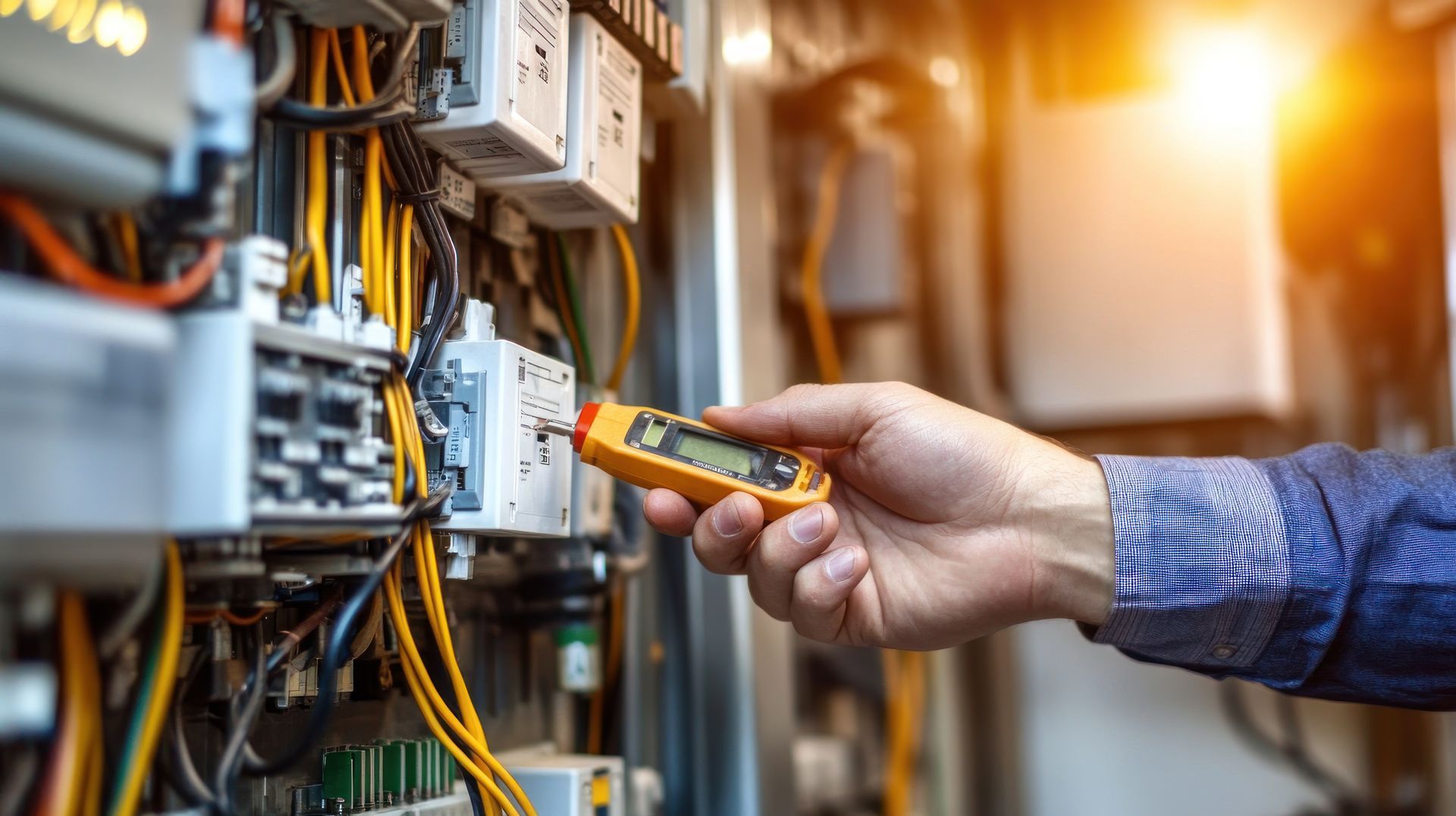
Ensuring electrical safety is paramount for homeowners in Jacksonville, NC. With the region's unique weather patterns and the increasing reliance on electrical devices, understanding and implementing proper safety measures can prevent potential hazards. Nash Electric LLC, a trusted name in the industry, emphasizes the importance of educating residents on best practices to safeguard their homes. Whether it's storm preparedness or routine maintenance, having a reliable Jacksonville NC electric service provider is essential. By adhering to these guidelines, homeowners can protect their families and properties from electrical mishaps while ensuring their electrical systems remain efficient and up to code.
Storm Preparedness
1. Install Whole-House Surge Protectors
These devices shield your home's wiring from external surges, such as those caused by lightning strikes, by diverting excess voltage away from your electrical system. Unlike standard surge protectors that only protect individual appliances, whole-house protectors safeguard your entire home, including major appliances like refrigerators and HVAC systems. Having a professional electrician install these surge protectors ensures they are correctly integrated with your electrical panel.
2. Use Uninterruptible Power Supplies (UPS)
Connecting sensitive electronics like computers and home entertainment systems to a UPS ensures they receive consistent power during outages, preventing data loss and equipment damage. A UPS contains a built-in battery that provides temporary power, allowing you to safely shut down devices without sudden disruptions. This is especially crucial for work-from-home setups, home security systems, and medical equipment that rely on continuous power.
3. Regularly Inspect and Maintain Your Electrical System
Routine checks by professionals can identify vulnerabilities, such as outdated wiring or overloaded circuits, that may be exacerbated during storms. Weak connections and aging components can fail under heavy electrical loads, leading to dangerous situations. Scheduling an annual inspection ensures your system is prepared for adverse weather conditions.
4. Equip Your Home with a Backup Generator
Having a standby generator ensures continuous power supply during extended outages, maintaining essential functions like refrigeration and heating. A professionally installed generator automatically switches on when the main power fails, providing uninterrupted energy without requiring manual intervention. Portable generators can also be an option, but they must be used safely outdoors to prevent carbon monoxide buildup.
Safe Use of Extension Cords
1. Select the Appropriate Cord for the Job
Ensure the extension cord's gauge matches the power requirements of the connected device. Using an undersized cord can cause overheating and pose a serious fire risk. Look for cords labeled for indoor or outdoor use, and avoid using indoor cords in harsh weather conditions.
2. Avoid Daisy-Chaining Cords
Connecting multiple extension cords together, known as "daisy-chaining," can lead to excessive resistance and create potential fire hazards. Instead, use a single, long cord that meets your needs, or consider installing additional outlets where necessary. Power strips with surge protection are a safer alternative but should also not be overloaded.
3. Inspect Cords for Damage Before Use
Regularly check for fraying, exposed wires, or damaged plugs. Even minor wear and tear can lead to electrical shocks, short circuits, or fires. If a cord appears damaged, replace it immediately rather than attempting to repair it with tape.
4. Keep Cords Unobstructed
Running cords under rugs or furniture can cause them to overheat, increasing the risk of fire. Additionally, placing heavy furniture on top of cords can damage the insulation, exposing live wires. Keep extension cords visible and away from high-traffic areas to prevent tripping hazards.
Childproofing Electrical Outlets
1. Install Tamper-Resistant Receptacles (TRRs)
These outlets have built-in shutters that prevent foreign objects from being inserted, reducing the risk of electrical shocks. Unlike traditional plastic plug covers, TRRs are permanent solutions that automatically block access when a plug is not inserted. They are now required by the National Electrical Code (NEC) in new residential construction.
2. Use Outlet Covers
For existing outlets, especially those within a child's reach, use plastic outlet covers to block access. Look for covers that require a two-handed operation to remove, as basic plug-in covers can become a choking hazard if a child manages to pull them out. Sliding outlet covers are another effective alternative that automatically closes when not in use. Learn more about safe electric practices from the pros themselves, read “DIY Electricals Safe For Homeowners: Trusted Electrician.”
3. Educate Children About Electrical Safety
Teach kids about the dangers of electricity and the importance of not inserting objects into outlets or tampering with electrical devices. Encourage them to ask for help when plugging in devices and explain why certain areas of the home may be off-limits. Supervision and open conversations about safety can prevent accidental injuries.
4. Keep Cords Out of Reach
Ensure that appliance cords are not dangling where children can pull them, potentially causing injuries or exposing live wires. Use cord organizers or secure them along walls to minimize the temptation for curious toddlers to grab them. Keeping electrical appliances unplugged when not in use further reduces risks.
Handling Electrical Emergencies
1. If You Experience an Electrical Shock
Immediately disconnect the power source if possible. Seek medical attention, even if the injury seems minor, as internal damage may have occurred. Avoid touching the person being shocked without ensuring the power is turned off first, as you may become a victim yourself.
2. In Case of Electrical Sparks or Burning Smell
Turn off the main power supply to prevent potential fires. Do not attempt to use affected appliances or outlets until they have been inspected by a professional. Call an electrician if you notice persistent sparking, crackling sounds, or a burning odor near outlets.
3. If an Electrical Fire Occurs
Do not use water to extinguish the fire, as it can conduct electricity and worsen the situation. Rather, put out electrical fires with a Class C fire extinguisher. If the fire spreads quickly, evacuate immediately and call emergency services.
4. Report All Incidents to a Professional
After any electrical emergency, have a licensed electrician assess your home's electrical system to identify and rectify the root cause. Even minor sparks or flickering lights could be signs of underlying wiring problems that need attention.
Importance of Routine Inspections
1. Schedule Annual Professional Inspections
Licensed electricians can detect problems like outdated wiring, overloaded circuits, or faulty installations that may not be apparent to homeowners. Regular inspections ensure that your electrical system meets the latest safety codes and operates efficiently.
2. Monitor for Warning Signs
Be vigilant for flickering lights, frequent circuit breaker trips, or outlets that are warm to the touch, as these can indicate underlying issues. Small warning signs can be early indicators of a more serious electrical failure. Addressing these issues early can prevent costly repairs or dangerous situations.
3. Upgrade Outdated Systems
Homes with older electrical systems may not meet current safety standards. Older knob-and-tube wiring or aluminum wiring can pose risks and should be updated by professionals. Upgrading to modern circuit breakers, grounded outlets, and energy-efficient solutions enhances safety and functionality.
Conclusion
Prioritizing electrical safety is essential for Jacksonville homeowners. By implementing these practices, you can protect your home and loved ones from potential electrical hazards. Regular maintenance, proper usage of electrical devices, and proactive measures are key to ensuring a safe living environment. If you suspect electrical issues, consulting a professional electrician is always the best course of action.
Don’t wait for an emergency to address electrical concerns. Trust
Nash Electric LLC to keep your home safe with expert inspections, repairs, and installations. Our skilled team is ready to handle all your electrical needs, from upgrades to safety improvements.
Get in touch with us today for reliable service and peace of mind.
